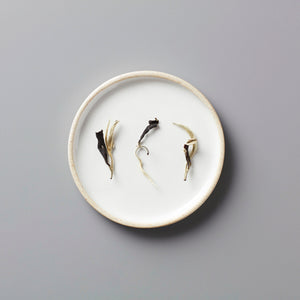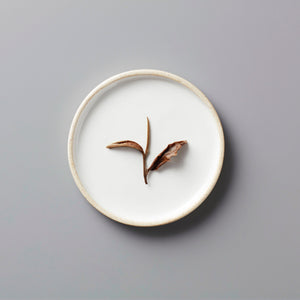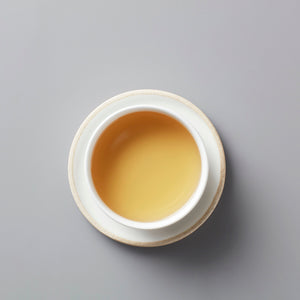Your Cart is Empty



MA WEI MOONLIGHT | white
$4.00 - $56.00
MA WEI MOONLIGHT is a shade-dried yue guang bai—"moonlight white"—from outer Simao, central Yunnan, China. This production from our partners at Ma Wei Shan is bud-heavy at a mostly 1:1 (1 bud : 1 leaf) pluck (with some 1:2 plucks). We selected their shade-dried version over sun-dried; the deep sugars and high floral character of shade-dried yue guang bai outdid the rich, "cooked" flavors of the same tea sun-dried that year. The farm is an organic certified plantation spanning several mountains, with slopes of tea trees averaging 30 years old. Our yue guang bai is made with their highest elevation (1200 m.) large leaf material typically reserved for their factory pu'er production. An autumn harvest, this tea is fresh with luscious body and intense huigan (lingering sweetness in the throat).
Much like our FUDING BAI MUDAN, an identically processed white tea of da bai ("big white") cultivar material from Fuding, MA WEI MOONLIGHT is hand-plucked, briefly withered, and dried indoors with fans. There is some debate as to whether this tea qualifies as a type of pu'er (a position taken by those who think a tea's genetic origin is most important to its classification) or a white tea (as its processing would suggest); in our view, the way material is processed is what categorizes it (e.g. da ye cultivar trees made into mo li long zhu, or Japanese asanoka trees processed as white tea). The white tea process leaves a tea "unfixed", a step wherein tea is cooked in some way to kill off the enzymes that cause oxidation. This yue guang bai is alive with biomolecules that have will make a significant impact on the aroma and taste of this tea over time, developing deeper sugars and richer florality.
Highly suitable for aging, this tea will develop some complexity over years (we may have the last several kilos pressed in anticipation of this). The leaves in this lot are mostly unbroken, and workable in multiple formats. Experimentation is encouraged.
Scroll to the bottom for tea producer Yuanzhen's thoughts on organic cultivation (and Ma Wei Shan's poultry economy!).
vintage — autumn '21
style — yue guang bai ("moonlight white")
cultivar — da ye ("big leaf")
region — Simao, Yunnan, China
locale — Ma Wei Shan tea farm
elevation — 1200 meters
producer — Yuanzhen Li
nomenclature — ma wei (马尾)—"horse tail" | shan (山)—"mountain"
STEEPING PARAMETERS
(use freshly boiled spring water)
modern, large format
[300 ml+ vessel — BOLI, large teapot]
3 grams — 200°F (93°C) — 3 minutes
traditional, small format
[150 ml- vessel — gaiwan, small teapot]
5 grams — 200°F (93°C) —15 seconds (no rinse)
+10 seconds each additional steep



